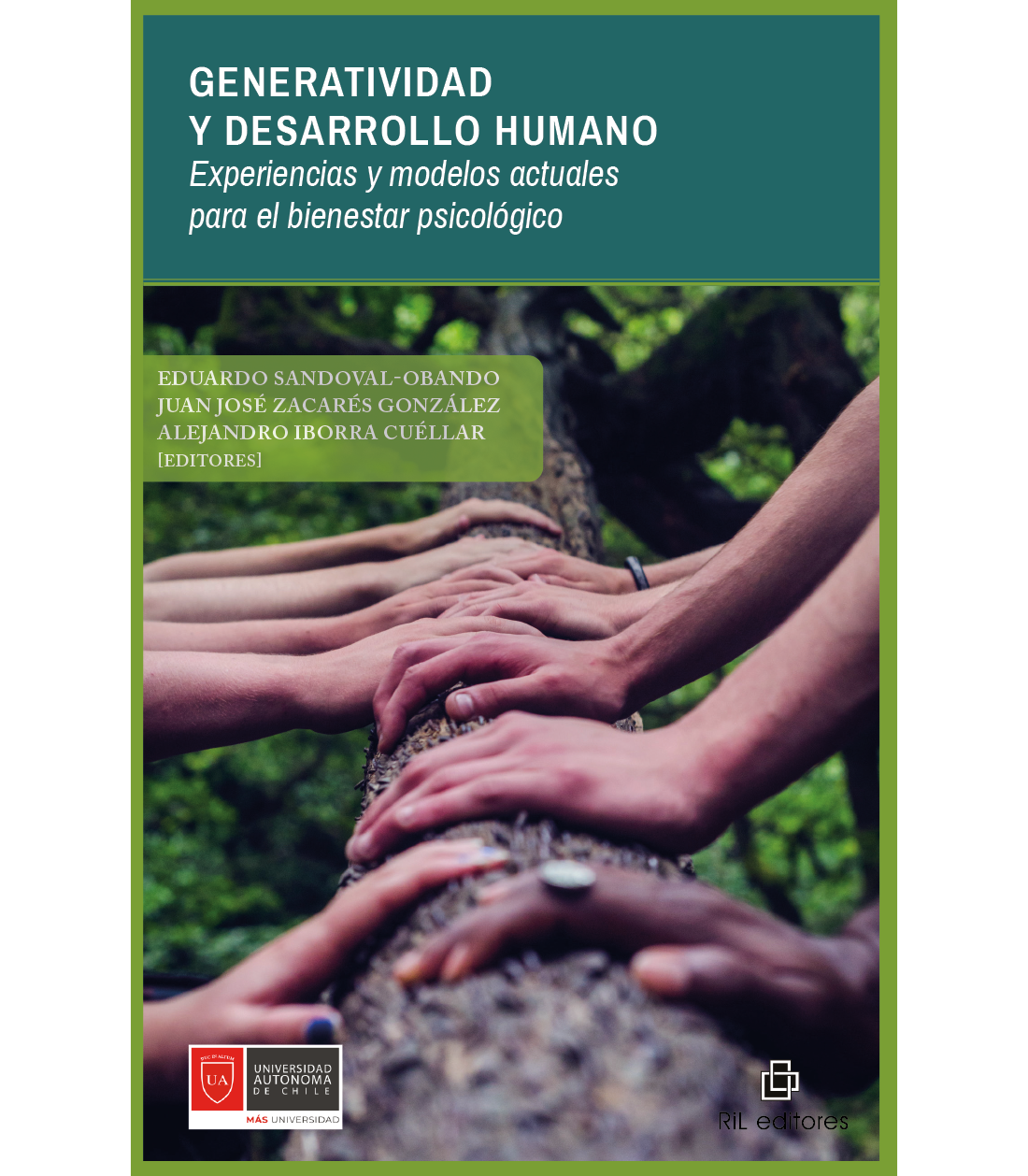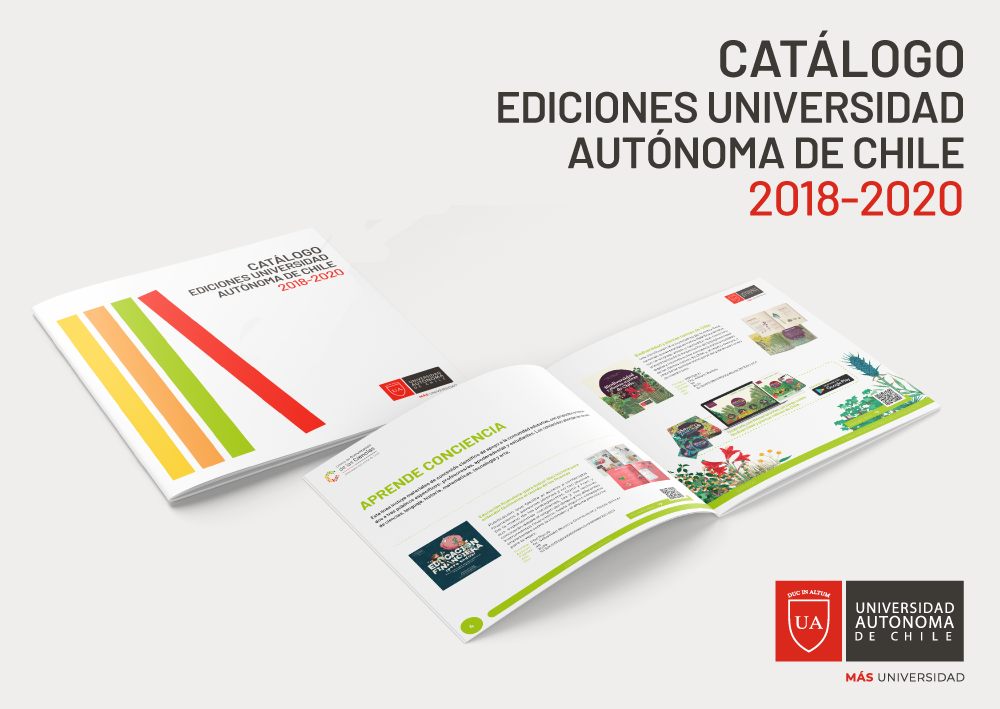Generatividad y desarrollo humano: Experiencias y modelos actuales para el bienestar psicológico
Palabras clave:
Generatividad, Desarrollo humano, PsicologíaSinopsis
La presente obra emerge como resultado del trabajo colaborativo y sinérgico construido por educadores/as e investigadores/as pertenecientes a diferentes universidades en el contexto iberoamericano, todos ellos interesados en la comprensión y estudio de la generatividad a lo largo del ciclo vital, con un interés particular en las implicaciones socioeducativas de dicho constructo para el desarrollo de la profesionalidad docente en diversos ambientes y contextos histórico-culturales.
Para cumplir con estos objetivos descritos, se han organizado los capítulos en 4 partes temáticos. Todos ellos, en su conjunto, favorecen un abordaje diverso, complejo y profundo de la generatividad, fundamentado en el desarrollo de investigaciones recientes en Iberoamérica, favoreciendo una sistematización actualizada y versátil sobre el desarrollo humano en el campo de las ciencias sociales y de la educación.
Referencias
Aiguabella, A. K., Sastre, L. S., Arnal, G. D. y Schlanger, K. (2018). Terapia Breve-Resolución De Problemas/MRI y Terapia Cognitivo-Conductual. Una comparación sucinta de modelos. Revista de Psicoterapia, 29 (110), 273-286. https://doi.org/10.33898/rdp.v29i110.214
Andersen, T. (1994). El Equipo Reflexivo. Diálogos y diálogos sobre los diálogos. Gedisa.
Anderson, H. y Colapinto, J. (1999). Conversación, lenguaje y posibilidades: un enfoque posmoderno de la terapia. Amorrortu Editores.
Bateson, G. (1987 /1972). Steps to an ecology of mind. Collected essays in anthropology, psychiatry, evolution, and epistemology. Jason Aronson.
Bateson, G. (1991). A sacred unity: Further steps to an ecology of mind. Harper San Francisco.
Bradley, C. L. y Marcia, J. E. (1998). Generativity-stagnation: A fivecategory model. Journal of Personality, 66 (1), 39-64.
https://doi.org/10.1111/1467-6494.00002
De Shazer, S. (1986). Claves para la solución en terapia breve. Paidós.
De Shazer, S., Dolan, Y., Korman, H., Trepper, T., McCollum, E. y Berg, I. K. (2021). More than miracles: The state of the art of solution-focused brief therapy. Routledge.
Erikson, E. H. (1950). Childhood and society. W. W. Norton & Company.
Erikson, K. (2004). Reflections on generativity and society: a sociologist´s perspective. En D. P. McAdams y E. de St. Aubin (Eds.), Generativity and adult development (pp. 51-61). APA.
Fisch, R., Weakland, J. y Watzlawick, P. (2003). Cambio: formación y solución de los problemas humanos. Herder.
Gergen, K. J. (2009). Relational being: Beyond self and community. Oxford University Press.
Hoggan, C. (2014). Insights from breast cancer survivors: The interplay between context, epistemology, and change. Adult Education Quarterly, 64(3), 191–205. https://doi.org/10.1177/0741713614523666
Hoggan, C. (2016). Transformative learning as a metatheory: Definition, criteria, and typology. Adult Education Quarterly, 66(1), 57–75.
https://doi.org/10.1177/0741713615611216
Iborra, A. Rios M., Martínez, C. y McWhirter, J. (2008). Becoming a professional: comparing four interventions to promote an identity change. Contextos Clínicos, 1(2), 93-105. https://doi: 10.4013/ctc.20082.05
Kegan, R. (1982) The evolving self. Harvard University Press.
Kegan, R. (2000). What ‘form’ transforms? En J. Mezirow (Ed.), Learning as transformation (pp. 35-70). Jossey-Bass.
Kegan, R. (2003). Desbordados: cómo afrontar las exigencias psicológicas de la vida actual. Desclée de Brouwer.
Kim, S., Chee, K. H., y Gerhart, O. (2017). Redefining generativity: Through life course and pragmatist lenses. Sociology Compass, 11, Article e12533 https://doi.org/10.1111/soc4.12533
McAdams, D. P. y de St Aubin, E. (1992). A theory of generativity and its assessment through self-report, behavioral acts, and narrative themes in autobiography. Journal of Personality and Social Psychology, 62(6), 1003-1015. https://doi.org/10.1037/0022-3514.62.6.1003
McNamee, S. (2015). Radical presence: Alternatives to the therapeutic state. European Journal of Psychotherapy & Counselling, 17(4), 373-383. https://doi.org/10.1080/13642537.2015.1094504
McWhirter, J. (2017). Differential information and the emergence of mind. Developing Bateson’s ideas on difference, mind, and epistemology. En N. Bateson (Ed.), After Gregory Bateson: towards a new discourse and applications (pp. 87-115). The International Bateson Institute.
McWhirter, J. (2000a). Re-modelling NLP, Part 6 —Understanding change. Rapport (48). [Disponible en https://sensorysystems.co.uk/dbmremodelled-nlp/part-six-understanding-change-2/ ]
McWhirter, J. (2000b). Re-modelling NLP, Part 7 —Facilitating change. Rapport (49). [Disponible en https://sensorysystems.co.uk/dbmremodelled-nlp/part-seven-facilitating-change/]
McWhirter, J. (2001). Re-modelling NLP, Part 9 —Organizing change. Rapport (51). [Disponible en https://sensorysystems.co.uk/dbmremodelled-nlp/part-nine-organising-change/ ]
Meichenbaum, D. (2017). The evolution of cognitive behavior therapy: A personal and professional journey with Don Meichenbaum. Taylor & Francis.
Mezirow, J. (1978). Education for perspective transformation: Women’s re-entry programs in community colleges. Teachers College, Columbia University.
Mezirow, J. (2000). Learning to think like an adult. En J. Mezirow (Ed.), Learning as transformation: Critical perspectives on a theory in
progress (pp. 3-34). Jossey-Bass.
Newton, N. J. y Jones, B. K. (2016). Passing on: Personal attributes associated with midlife expressions of intended legacies. Developmental Psychology, 52(2), 341–353. https://doi.org/10.1037/a0039 905.
Newton, N. J., Chauhan, P. K. y Pates, J. L. (2020). Facing the future: Generativity, stagnation, intended legacies, and well-being in later life. Journal of Adult Development, 27(1), 70-80. https://doi.org/10.1007/s10804-019-09330-3
Overton, W. (2006). Developmental Psychology: Philoshophy, Concepts and Methodology. En R. Lerner (Ed.), Handbook of Child Psychology, Volume I. Theoretical Models of Human Development (pp.18-88). John Wiley & Sons.
Rappaport, R. A. y Rappaport, R. A. R. (1999). Ritual and Religion in the Making of Humanity (Vol. 110). Cambridge University Press.
Valsiner, J. (2006) Developmental epistemology and implications for methodology. En R. Lerner (Ed.), Handbook of Child Psychology,
Volume I. Theoretical Models of Human Development (pp.166-209). John Wiley & Sons.
Whitbourne, S. K. (2010). The search for fulfillment: revolutionary new research that reveals the secret to long-term happiness. Ballantine Books.
Zacarés, J. J. y Serra, E. (2011). Explorando el territorio del desarrollo adulto: la clave de la generatividad. Cultura y Educación, 23(1),
-88. https://doi.org/10.1174/113564011794728533
*Presente referencia corresponde al primer capítulo de la obra.

Descargas
Publicado
Colección
Categorías
Licencia

Esta obra está bajo una licencia internacional Creative Commons Atribución-CompartirIgual 4.0.

